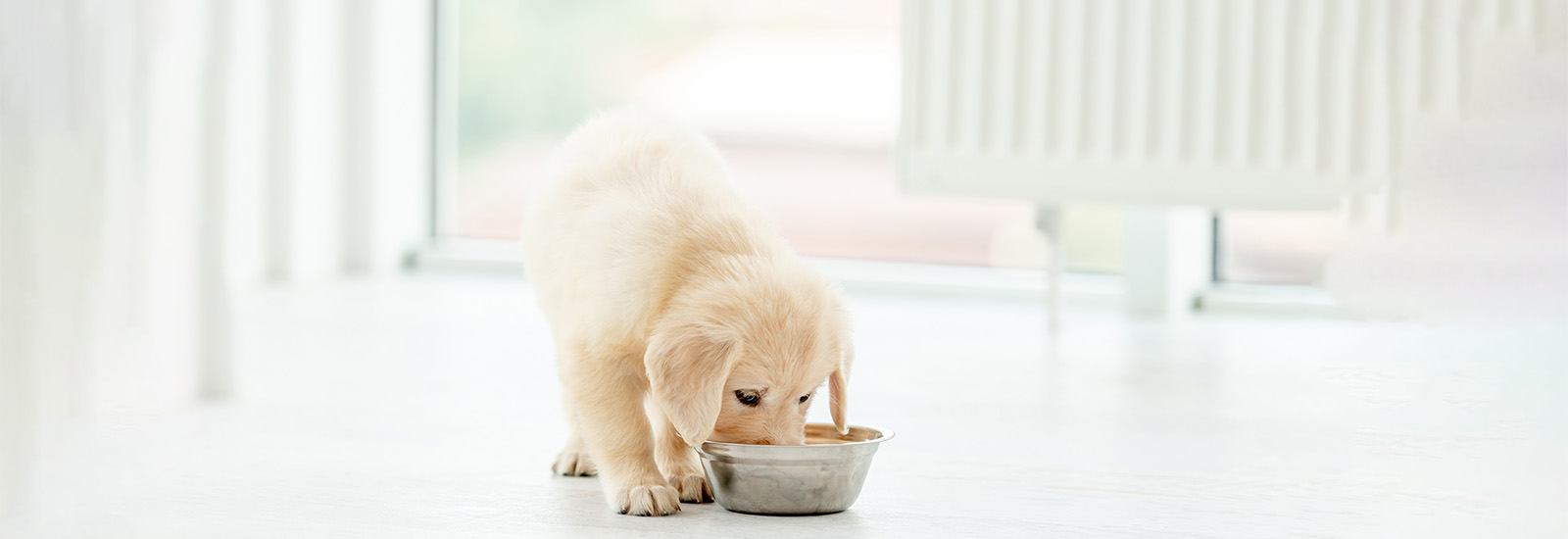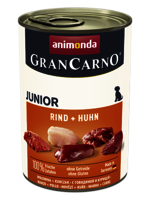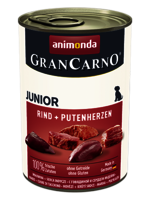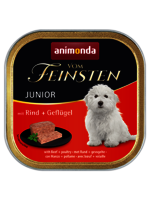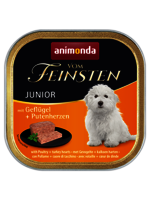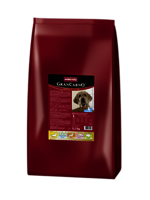Changing a puppy’s food
If you are planning to change your puppy's food, you should make sure that the timing is right and that you change the food gradually. Here are some tips for a successful changeover of the food.
When should puppies have their first change of food?
The first change of food will be carried out by the breeder. The exact point in time depends on the mother’s milk production and the size of the litter. As soon as the mother is no longer able to provide sufficient milk, the breeder must get the puppies used to solid food. For this purpose, a high-quality puppy food should be chosen. Over the next two to four weeks, the number of meals and the amount of food provided should be gradually increased until the puppy is only eating puppy food.
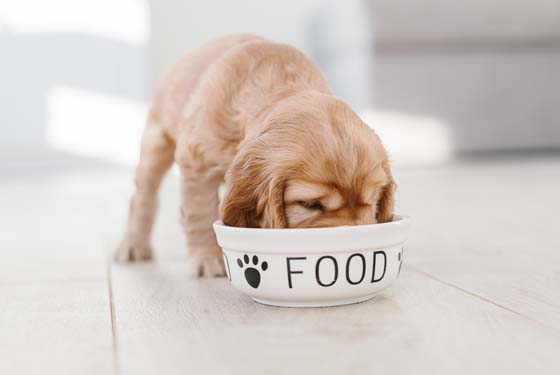
When to change your puppy's food in its new home
When the puppy arrives at its new home, you should feed it the puppy food it is familiar with. After all, the puppy has to get used to its new home first. At first everything will be new for your pet. It has just had to leave its mother, its brothers and sisters and the people it trusted.
Now it will have to build up new trust in order to feel safe and protected. A change of food for puppies should therefore only take place after a sufficient acclimatisation period. This will vary in length from puppy to puppy.
How long does the changeover of a puppy’s food take?
A changeover of food should never be carried out too abruptly. A sudden change in diet can lead to digestive problems, for example diarrhoea. If you want your puppy to get used to a new food, this should be done gradually. We recommend mixing a small amount of the new food with the familiar food. Over a two week period you should continuously increase the amount of new food and decrease the amount of the usual food. In this way, the puppy’s intestinal flora has plenty of time to adjust to the new food.
5 Tips for changing your puppy’s food
- Sufficient time to get acclimatised: Give your puppy enough time to settle in with you before switching to a different food.
- Carry out the change of food gradually: To avoid gastrointestinal problems, the changeover should be carried out gradually over a period of two weeks.
- High quality puppy food: Always choose high quality puppy food that provides your puppy with all the essential nutrients it needs.
- Frequency of changes in food: When changing your pet’s food, the general rule is as seldom as possible, but as often as necessary. Never change the food more often than absolutely necessary.
- Problems with the change in diet: If your puppy gets diarrhoea despite all the precautions mentioned above, you should consult a vet.
Changeover from puppy food to adult food
In the growth phase, puppies require a great deal of energy. They get this from a high-quality complete food for puppies, which provides them with all the essential nutrients they need. Growth is particularly rapid in the fifth and sixth months of their lives. Depending on their breed and size, dogs take different lengths of time to grow.
Small dogs are fully grown by the age of around 10 months. Medium-sized dogs are fully grown at 12 months and very large dogs only when they are 2 years old. Changing from a puppy food to an adult food should therefore also be carried out at different times for the individual dogs. A change of food is, however, always necessary, because adult dogs have different nutritional requirements to growing dogs.
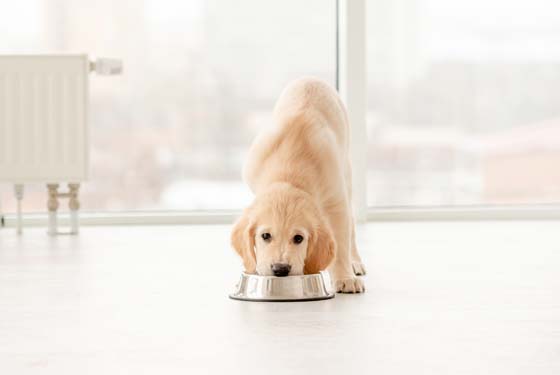
You may also like this
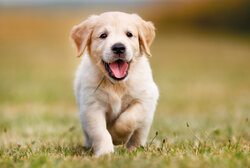
Feeding your puppy properly
A healthy diet is important for the growth phase
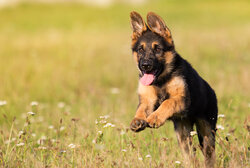
When a puppy keeps biting
How to stop your puppy biting
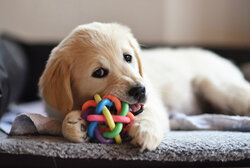
A puppy is moving in
Tips on picking it up, the items you need and acclimatisation
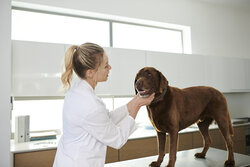
Housetraining a puppy
How to housetrain your puppy
